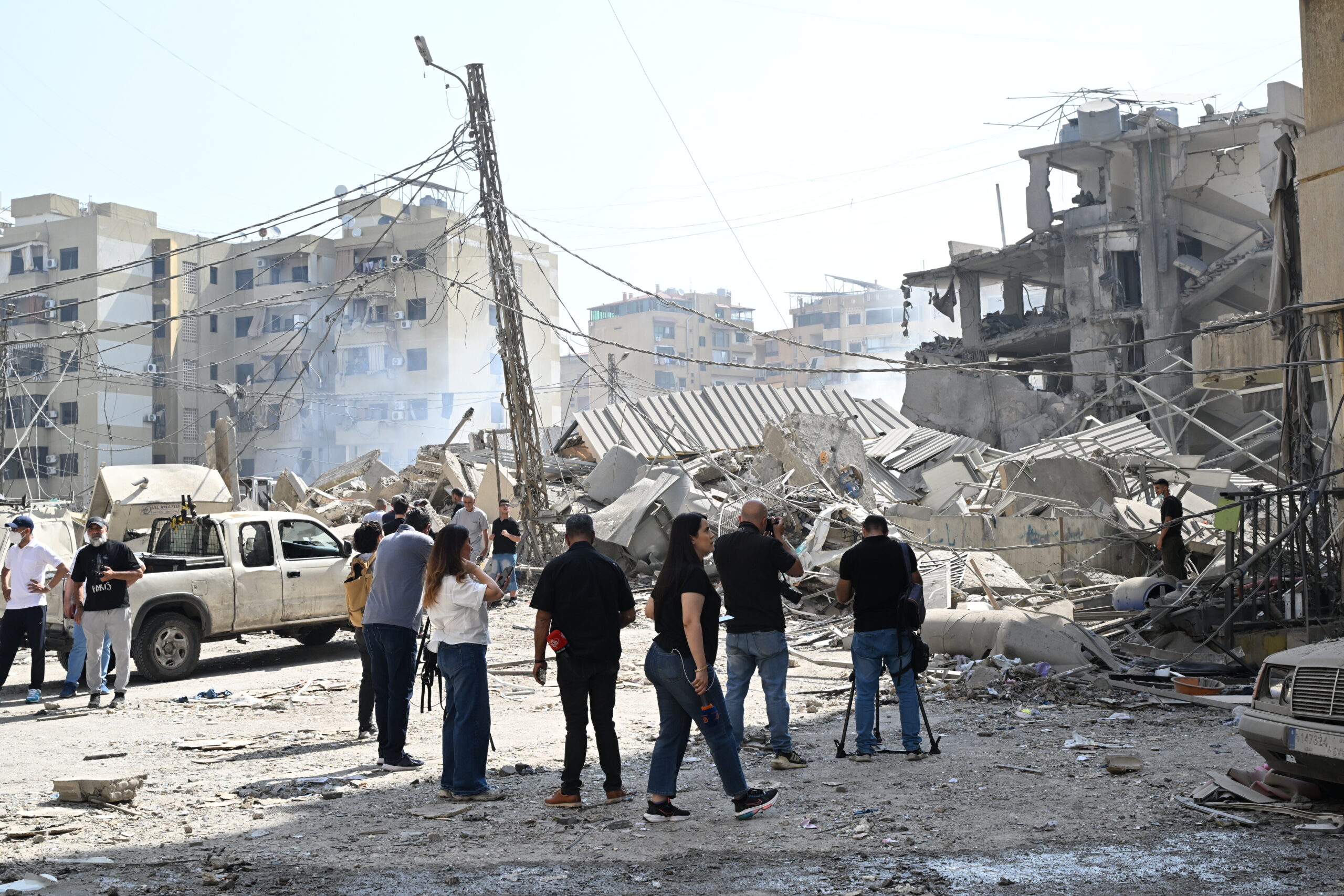
By Elham Asaad Buaras
London, (The Muslim News): At least 12 people, including seven Syrian refugees and five Lebanese nationals, were killed on Tuesday when Israeli warplanes carried out a series of airstrikes in eastern Lebanon’s Baalbek region, in what has become the deadliest breach of the November ceasefire agreement between Israel and Hezbollah.
Lebanon’s Health Ministry said multiple airstrikes were conducted, one of which struck a Syrian refugee camp in Wadi Fa’ra, Baalbek district, killing seven Syrians and injuring at least 12 others. The state-run National News Agency (NNA) reported that all the fatalities occurred in Wadi Fa’ra. Israeli strikes were also reported on the outskirts of Shmustar town and Wadi Umm Ali, but casualties from those areas have yet to be confirmed.
The Israeli military said its fighter jets had carried out “numerous strikes” against what it described as Hezbollah military compounds “used for training and planning attacks against Israel”. A military statement added that since Israel had “eliminated” commanders from Hezbollah’s elite Radwan force in September, “the unit has been operating to re-establish its capabilities”.
Israel’s defence minister, Yoav Gallant, said the attacks were intended as a “clear message” to both the Lebanese government and Hezbollah.
Hezbollah issued a strongly worded response, calling the strikes “a major escalation in the context of the ongoing aggression against Lebanon and its people”.
In a statement, the group urged the Lebanese government to “take serious, immediate and decisive action” to uphold the truce with Israel and called on the United States to live up to its “responsibility as the sponsor of the ceasefire”.
“In the absence of an official, strong and effective position, and the continuing negligence and inaction internationally, will only lead to more violations and aggression,” the statement read.
Hezbollah accused Israel of trying to “press on Lebanon’s national will” but insisted that the Lebanese people would “hold on to resistance as a choice to confront the enemy”.
Tuesday’s strikes are the latest in a months-long campaign of Israeli military action across Lebanon, despite a ceasefire brokered last November that was intended to end cross-border hostilities between Israel and Hezbollah. Fighting erupted in September, escalating from sporadic skirmishes into full-scale warfare.
Since the ceasefire, Israel has carried out near-daily attacks, primarily in southern Lebanon, alleging threats from Hezbollah infrastructure.
Lebanese officials say these attacks have resulted in nearly 3,000 violations of the agreement, including the deaths of at least 236 people and injuries to over 540.
Under the terms of the deal, Israel was expected to complete its withdrawal from southern Lebanese territory by January 26. The deadline was extended to February 18 after Tel Aviv refused to comply. As of mid-July, Israel still maintains a military presence at five outposts along the border.
There has been no official comment from Hezbollah on Israel’s claim that the strikes targeted militant infrastructure in Baalbek.
The intensifying violence and growing civilian toll have raised concerns about the collapse of the already fragile ceasefire. Analysts warn that without firm diplomatic intervention; Lebanon risks being drawn deeper into a prolonged and destabilising conflict.
Photo:: A building is completely destroyed and damage is caused to surrounding buildings and vehicles after Israeli airstrike towards Dahieh area of Beirut, Lebanon earlier on June 6, 2025.Photographer: Houssam Shbaro/AA]